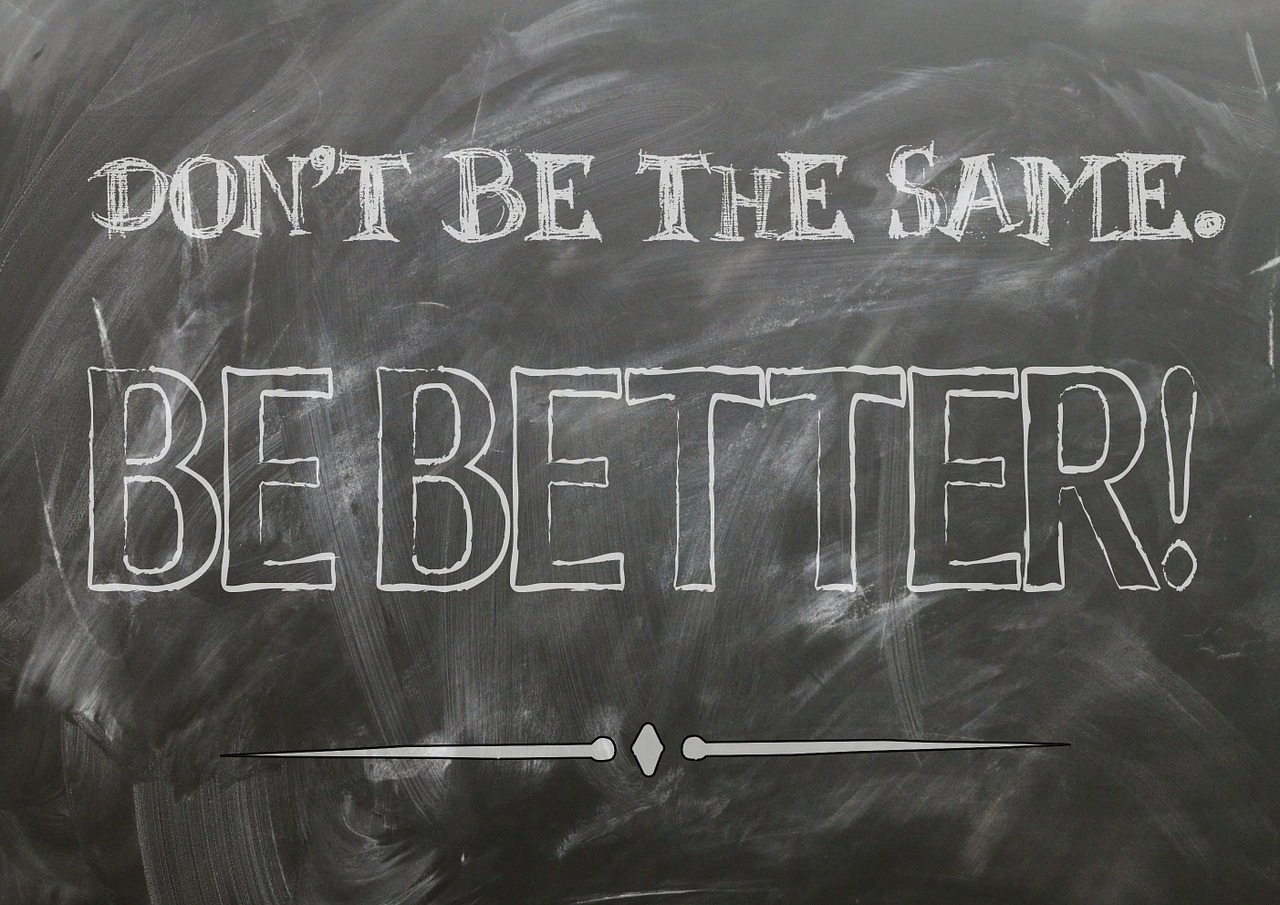To feel better, so many people today are taking antidepressants, going to therapy and looking for help from the outside. And while all of these may be necessary in certain cases, many could improve simply by adding exercise and daily meditation session into their life. Yes, this does require work and consistency, but only through work can real fulfillment and change occur. Only when one changes their habits and consciously lets go of things that are taking them down, they will be able to make that positive transformation in life. There is no easy fix, unfortunately.
The meditation controversy
1. You need a guru to teach you
One reason why people often choose not to meditate is because they think that meditation is so complicated that they cannot do it on their own. Luckily, this is very far from the truth.
Yes, there are many different meditation techniques out there, such as Vipassana or Transcendental Meditation, that do require guidance. Yes, you want someone to teach you, at least in the beginning. But that’s only in the beginning. Once you have practiced it for a while, there is nothing to hold you back from doing it independently.
On the other hand, you can start practicing simple meditation already now, without anyone’s help. Sit down with a straight back on a cushion or on a chair, close your eyes, take a deep breath in, hold it for a few seconds, and slowly breathe out. Do this a couple of times to relax. Once you are relaxed, your goal is to keep sitting with a straight back, eyes closed, have relaxed breathing, and to remove all internal dialogue from your mind.
Getting rid of internal dialogue is the hardest part, and that’s what mediation generally is all about. At first, this will seem like an impossible task. Your mind’s radio will constantly turn back on again. You will silence it, but within seconds, you will again find yourself thinking about your day, the food you eat, homework, kids or whatever else it may be. Don’t worry though, practice makes perfect.
Alternatively, you can start by reading some literature on meditation. You don’t have to do the complex stuff immediately. In my opinion, even the most basic mediation, practiced daily, has so much power.
If you want to learn more about meditation, make sure to sign up for my blog news here. As a sign of appreciation, you get a beginner’s guide on how to meditate.
2. Meditation is not a part of my religion
Believe it or not, some people don’t meditate because of their religion. I have heard Christians say that meditation belongs to Buddhism, so only Buddhists should meditate. To me, this is a very bizarre statement. At that point, I usually remind them that saying prayers is also a type of meditation. The words “prayer” and “mantra” can be used interchangeably.
Please, don’t limit your potential and happiness with your beliefs. Meditation should not be linked to sex, race or religion. We all can and should be able to sit down with our mind’s eye turned inwards, contemplating silence.
Buddhism does have its own types of meditation, but these are not what I am talking about here. I am talking about the most basic form of meditation – contemplation of silence.
Recommended read: Happiness, Inner Peace and Stress Relief – Stories of Schwarzenegger, Dalai Lama, Oprah, Jim Carrey and Others
3. It requires too much work
Meditation should be practiced daily. If you are a beginner, this can even be as little as five to ten minutes. With time, you can make it longer.
Nobody is forcing you to meditate for hours. There are many reasons to meditate daily, none of which should make you feel exhausted. Keep it short if you need to. It’s a lot more effective to do it for a while but daily, rather than do it for an hour once a week.
4. Meditation is not effective, it’s for hippies
Meditation is effective. The only people that say this are the ones that have either never done it, or done it for a too little. Again, it’s something that should be integrated into your existence, something you do for the rest of your life. If you are consistent with it, you will see the benefits. You reap what you sow.
Moreover, according to the Harvard Gazette, an eight-week mindfulness meditation program was able to “make changes in brain regions associated with memory, sense of self, empathy, and stress”. It made changes in brain’s gray matter, proving that mediation also affects us physically. It does work.

Why Meditate?
Below, I want to share with you the 6 reasons to meditate daily. In this case, I will not be talking about any specific type of meditation that requires guidance. Sitting down quietly, eyes closed and trying to not think of anything, is the meditation that we all can do on our own.
1. Reduces stress
The first reason to meditate is stress relief. It’s one of the most important effects of meditation.
Ever since I have begun to meditate, I noticed how I am able to handle stress so much better. Yes, there are many other techniques that I use on a daily basis to tackle stress, but knowing how stressful I used to be, I can say confidently that most of the stress is just not there anymore.
And that is what’s so awesome about mediation – you don’t have to reassure yourself that you are calm. Meditation changes your brain physically. As a result, your emotions change.
2. Raises awareness of self
The second reason to meditate is self-awareness.
Self-awareness is extremely important if you want to be happier, more successful and make better decisions in life. If you think about it, all of our anger and anxiety comes from the lack of self-awareness. We get into loops of self-destructive thoughts, which cause us to feel miserable. If we were to be self-aware 100% of the time, we would be in full control of how we feel and respond to the world.
Do an experiment, see if you can be completely aware for the next day. Try to observe all of the thoughts that pop into your mind. It’s a really difficult task, but it will teach you so much about yourself. You will also have more control over how you feel that day.
With mediation, self-awareness comes naturally. The longer you meditate, the more aware you become. And with time, you will notice how things that used to upset you, such as someone giving you an unpleasant look on the street, will have no impact on you whatsoever.
3. Raises awareness of others
The third reason to meditate is awareness of others.
Just as it is important to be self-aware, it is important to be aware of the people around you. Judgement, racism, stereotypical thinking – all occur because we cannot sympathize with other people.
When we meditate, we become more emotional, and as a result, we learn to feel others as well. We see every human being as unique, and we are able to focus more on the positive aspects, rather than our own negative perception of them.
I highly recommend this book: 8 Steps to Happiness: The Buddhist Way of Loving Kindness. It’s all about meditation and the awareness of others.
4. Makes you more positive
The fourth reason to meditate comes down to happiness and positivity.
Because meditation reduces stress, raises self-awareness and the awareness towards other people, we naturally become more positive. It’s difficult to be a negative person when you know that your anger and other destructive thoughts arise because you allow them, and not because someone is making you be that way.
Also, after each meditation session, there is a feeling of peace and tranquility that remains with us for some time. The more we meditate, the longer we can hold that feeling outside of meditation.
5. Makes you more creative
The fifth reason to meditate helps people with creativity.

Many like to compare meditation to drugs. And while meditation is actually good for you, unlike drugs, it allows us to get more in touch with ourselves. It opens up those areas of the brain that we have never been to previously, releasing this way our creative potential.
Funnily enough, many times I have had to stop meditating before the alarm clock rang, due to the “aha!” moments. An idea just pops up into my mind that is too precious to let go and forget. I then quickly write it down in my journal.
Recommended read: 6 Real Reasons to Keep a Daily Journal – Living in Awareness
6. Makes you question reality
The sixth reason to meditate is spirituality.
Earlier I said that basic meditation has nothing to do with religion. However, after you have been meditating for a while, you may begin to experience states of mind that cannot really be described in any way. They are deeply insightful, and feel like nothing you have ever felt before.
At times, it may be a very emotional experience or even ecstatic. At other times, you may even find yourself experiencing a hallucination. This is rare, in my experience, but is possible. And the hallucination, like a dream, may not carry any specific meaning, but it makes you question the nature of reality.
These were my six reasons to meditate on a daily basis. Of course, the reasons may vary for every individual, but these are the ones that are quite common. The bottom line is that meditation helps people improve their lives, making them more relaxed and thus happier.
Thank you for stopping by and good luck!
Please click below to subscribe and to follow us on social media:
Click here to follow us via E-mail!
Click here to follow us on Facebook!
Click here to follow us on YouTube!
Click here to follow us on Instagram!
Click here to follow us on Twitter!


 15 Best Inspirational Movies That Teach to Never Give Up
15 Best Inspirational Movies That Teach to Never Give Up
 50+ Best Self-Help Books That Will Change Your Life Forever
50+ Best Self-Help Books That Will Change Your Life Forever
 Short Motivational Stories of Failure and Success That You Must Know
Short Motivational Stories of Failure and Success That You Must Know
 10 Examples Where the Power of Positive Thinking Kicks Ass!
10 Examples Where the Power of Positive Thinking Kicks Ass!
 What to Do When Someone Is Better Than You? – Dealing with Jealousy
What to Do When Someone Is Better Than You? – Dealing with Jealousy

Leave a Reply